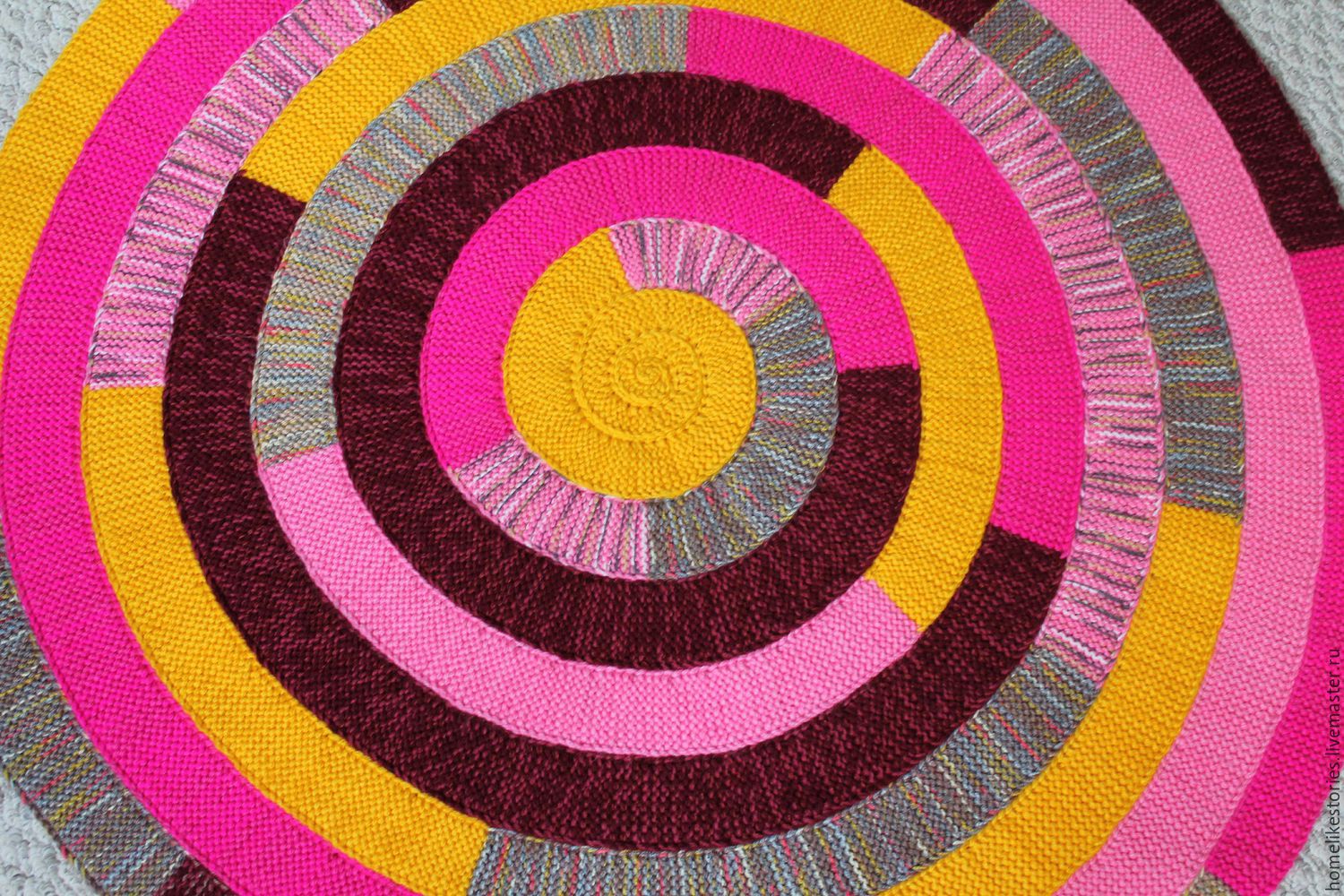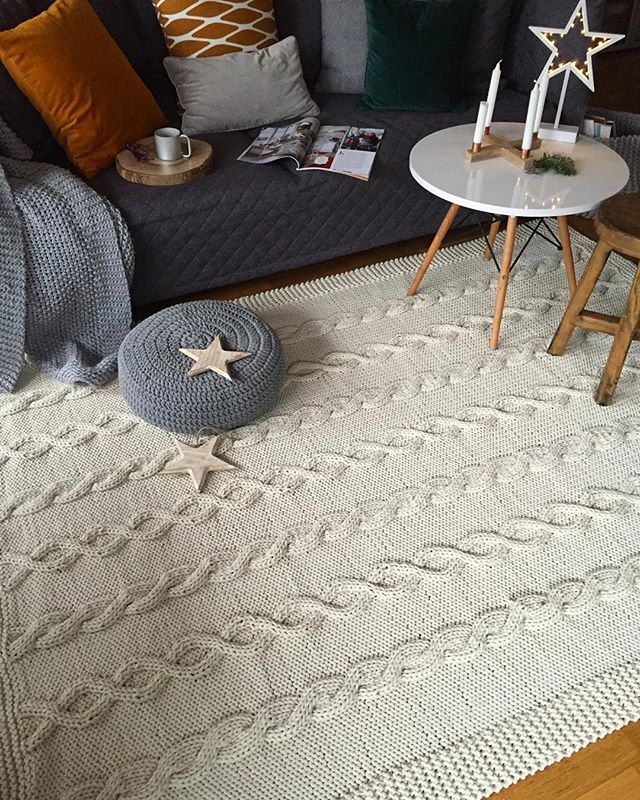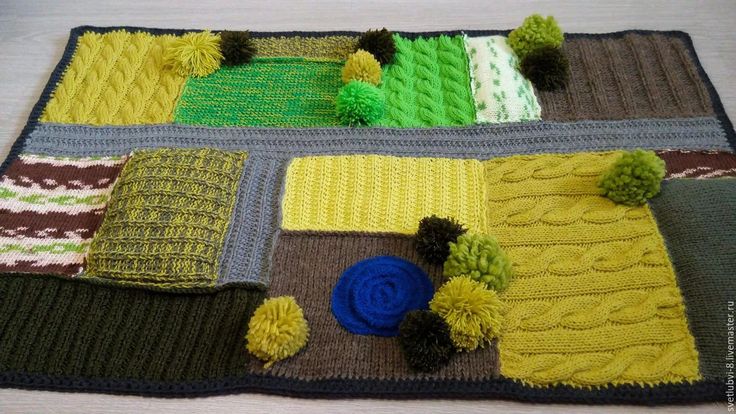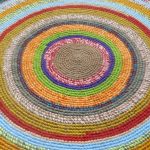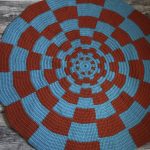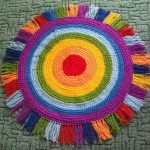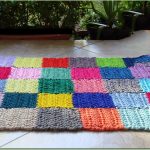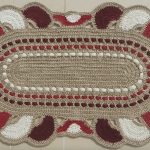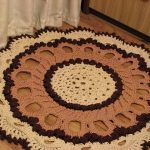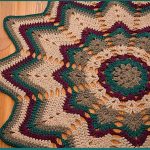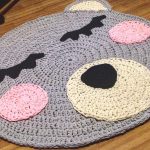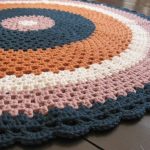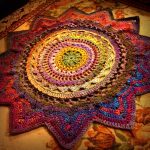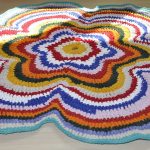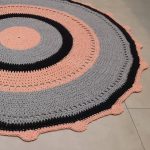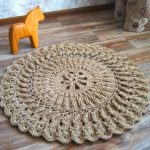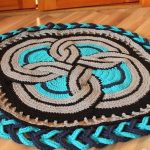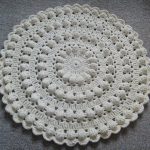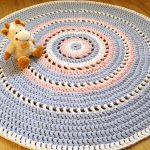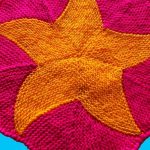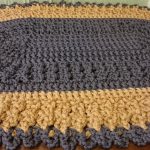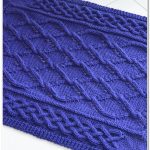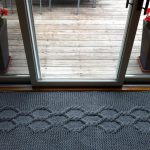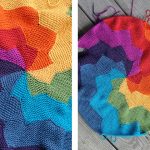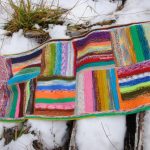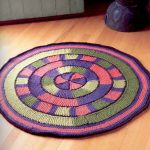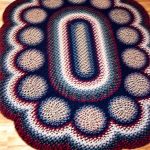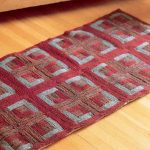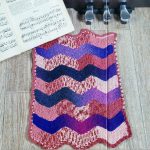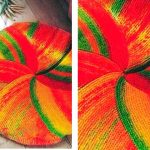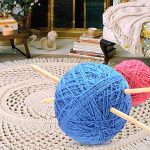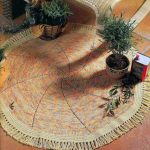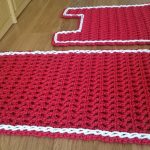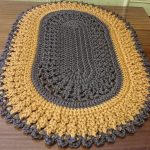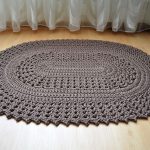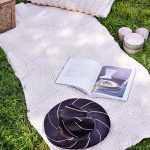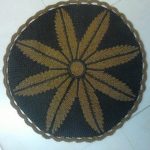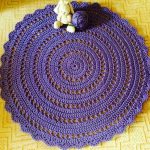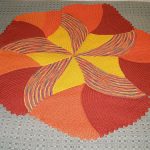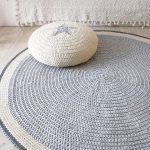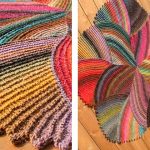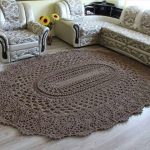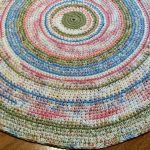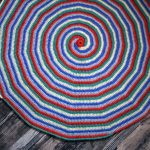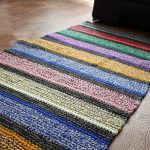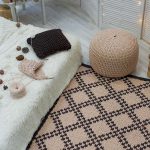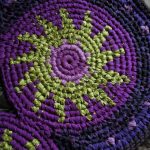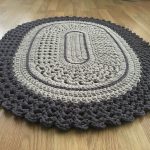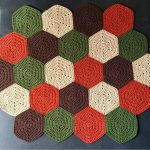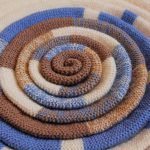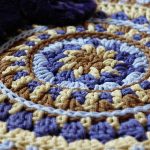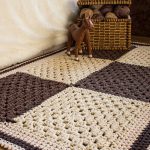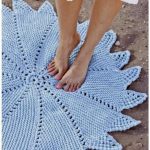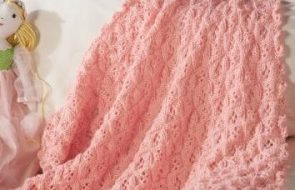Yarn, knitting needles and a pattern – that’s all you need to knit a small rug for your living room yourself.
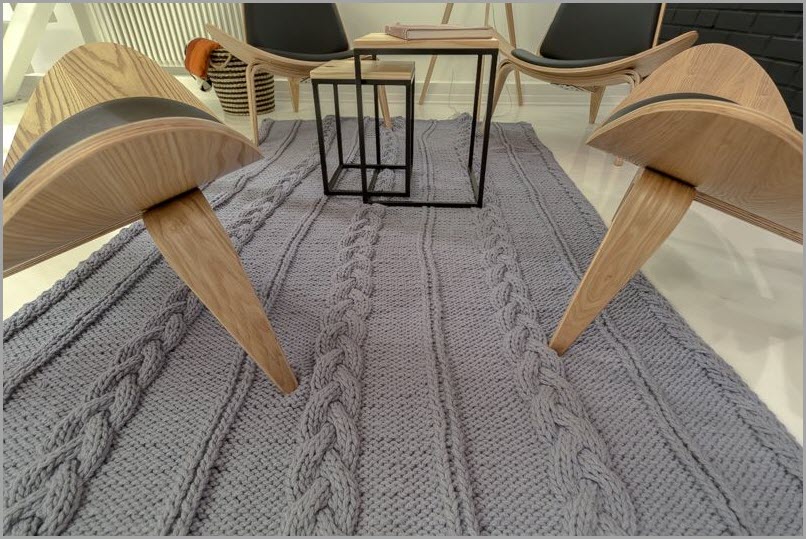
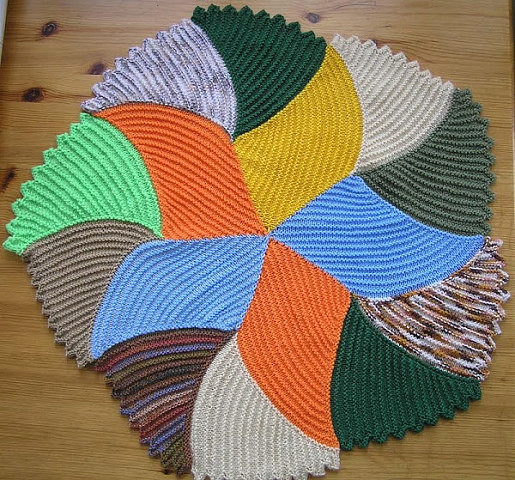
Compared to their Soviet counterparts, today's rugs have more of a decorative function. People have realized that small and bright rugs emphasize the richness of the interior much more favorably than bulky woolen items on all horizontal and vertical surfaces.
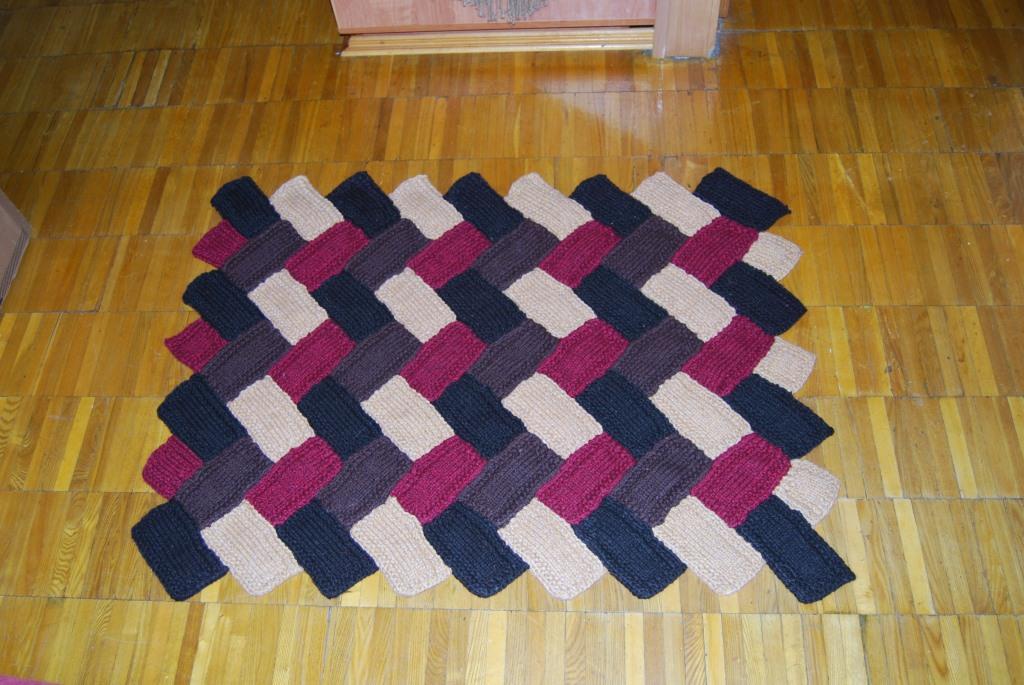
Of course, you won't be able to make a soft Persian rug on your own, but even basic knitting skills will be enough to make an original and bright item for the floor or the back of a chair. All you need is a suitable pattern with a detailed description of the knitting process and a little free time, and all other materials for handicrafts can be purchased in a specialized store.
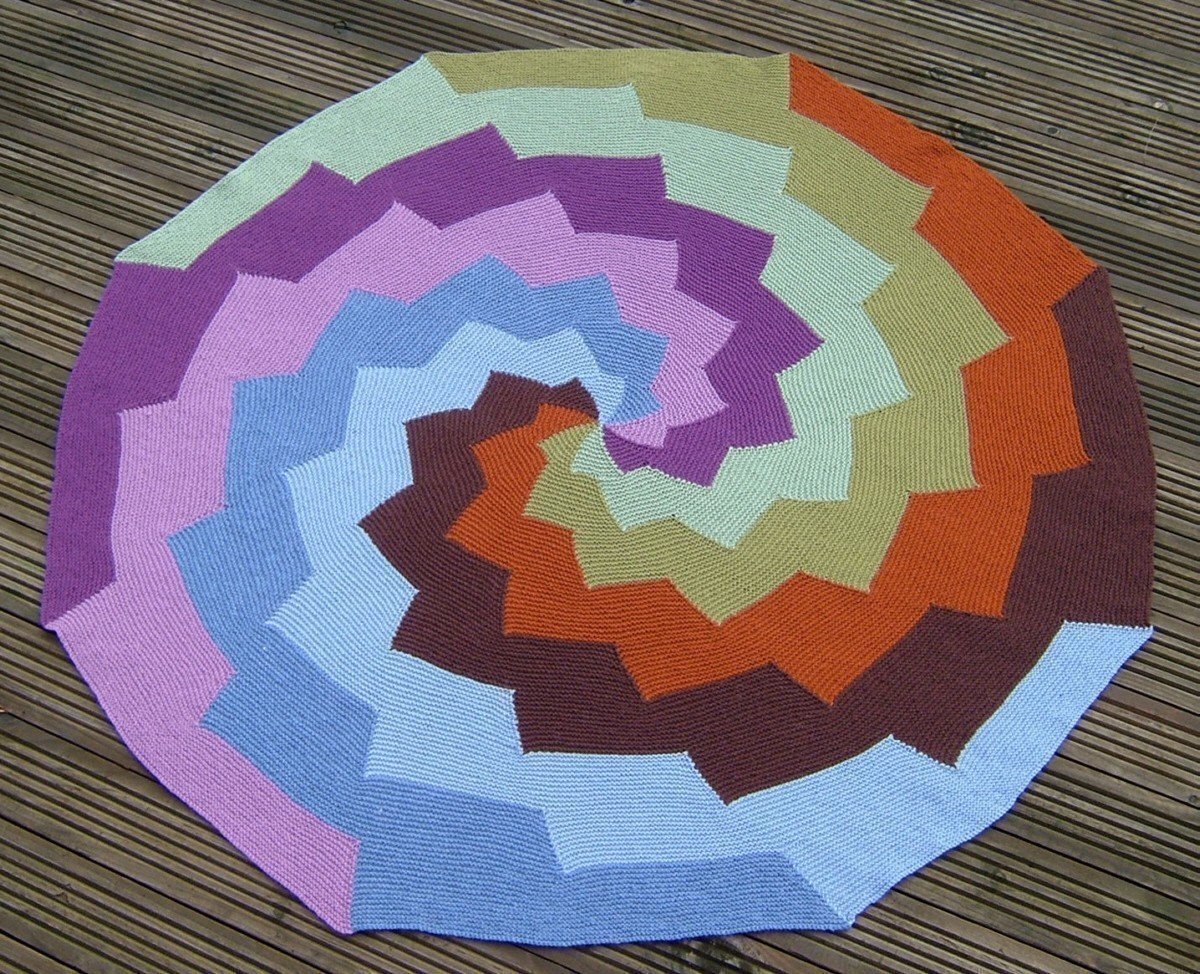
Content
How to knit a rug with knitting needles?
Making a rug with knitting needles is quite simple if you know where to start, namely: choosing the design, materials for production and the place where the rug will be located.
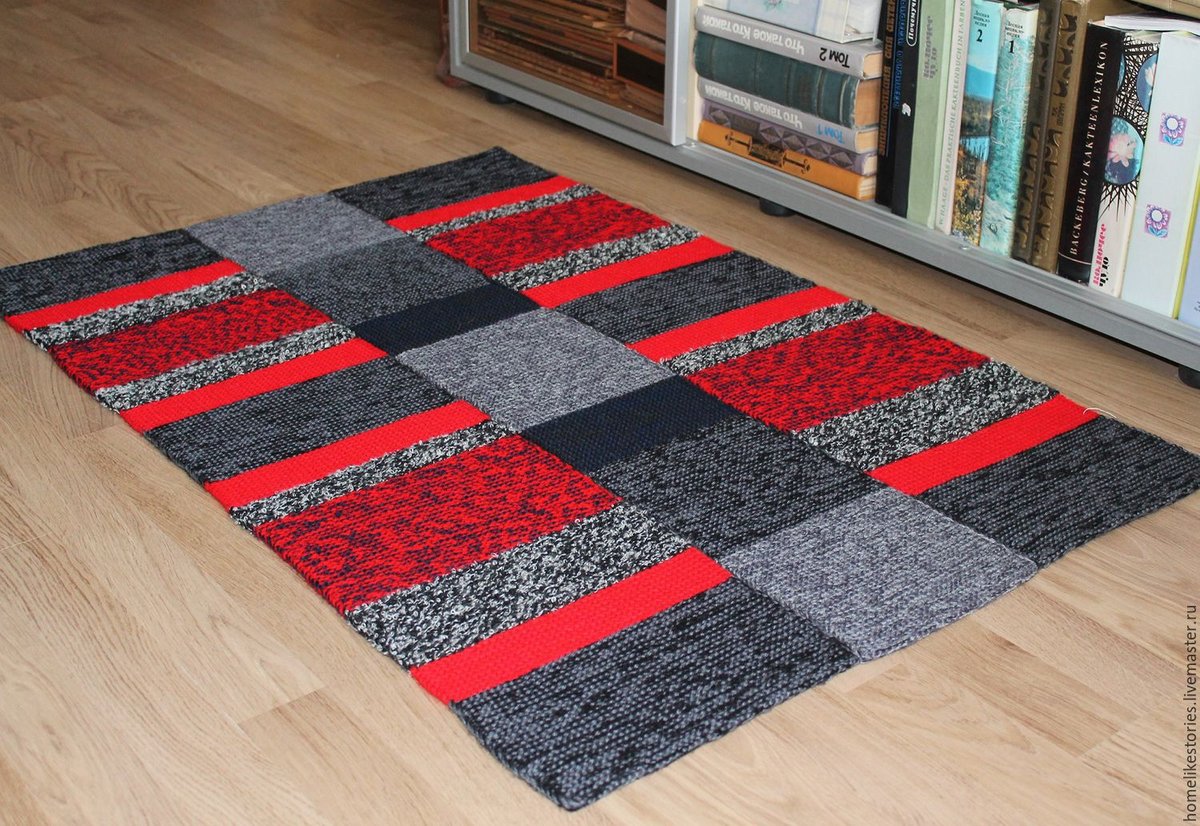
For kitchen rugs that will be washed frequently, it is best to use yarn made from acrylic or cotton.
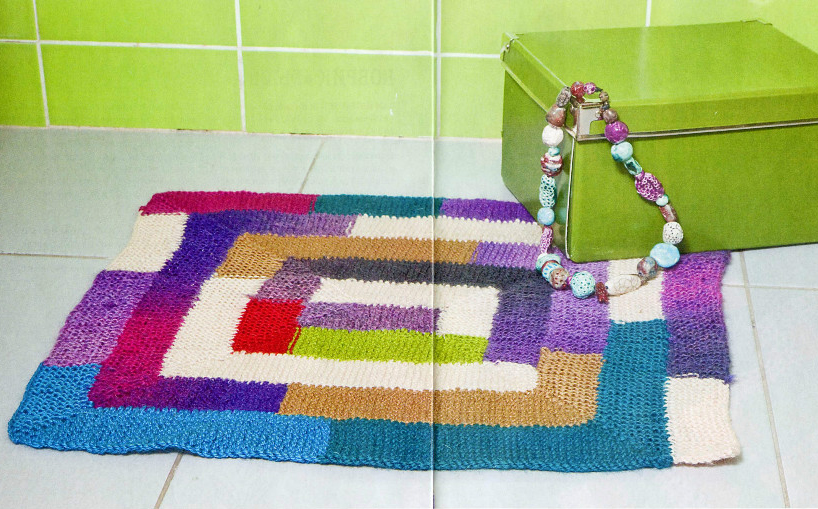
These materials best withstand the chemical effects of washing powders. Therefore, the product made from them will not lose its shape and color even after 30 washing cycles.
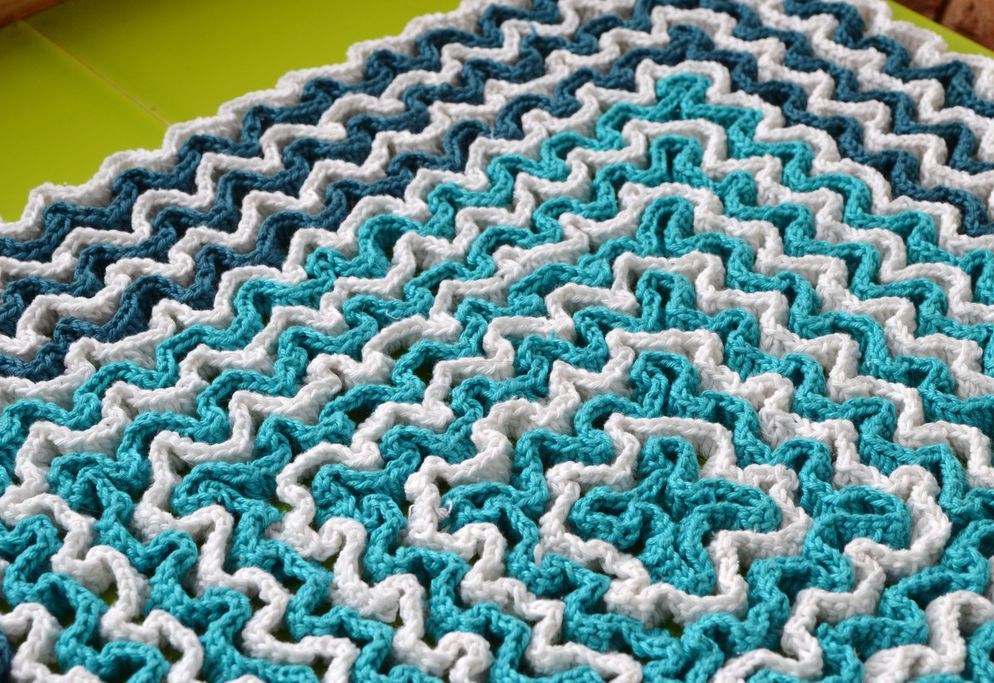
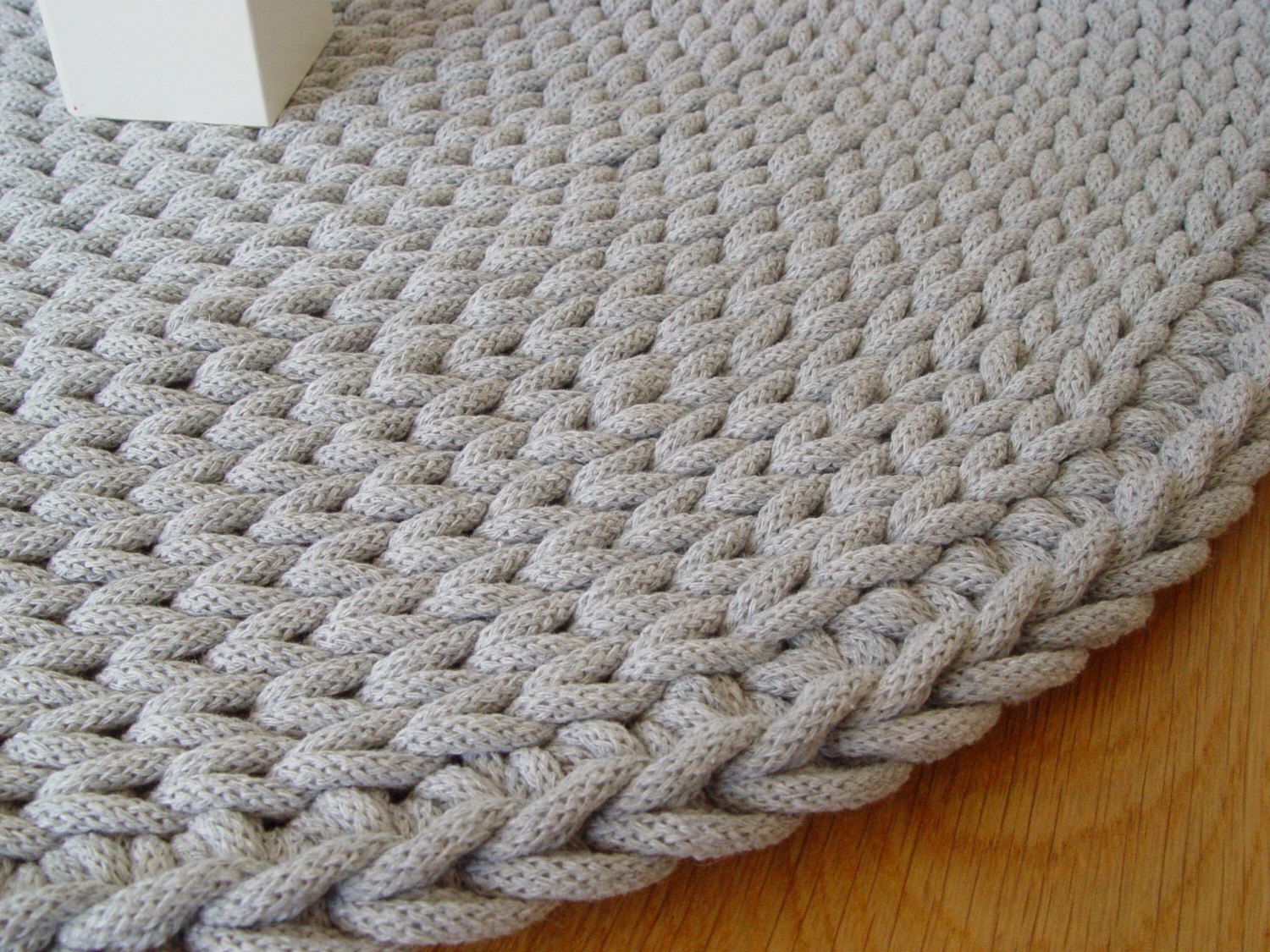
Thicker and warmer carpet models are used in bedrooms or living rooms. They are usually more voluminous and have a complex pattern. This effect can be achieved by using wool yarn. It constantly holds its shape, and the threads themselves are so tightly adjacent to each other that they do not form empty spaces.
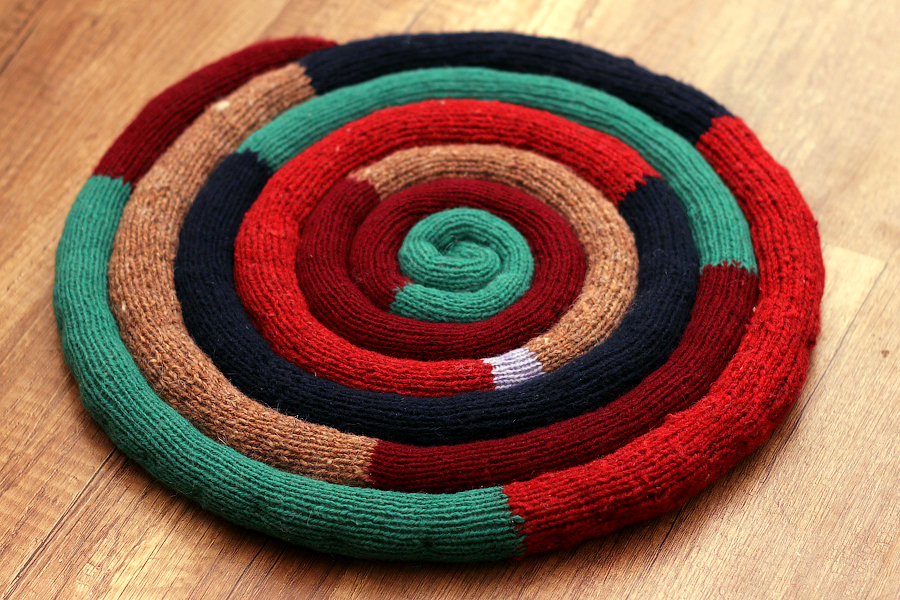
The only drawback of wool is that it wears out quickly. To extend its service life, you should choose wool not made of purely natural fibers, but with the addition of synthetics. But this option is better suited for corridors between rooms, where people most often pass.
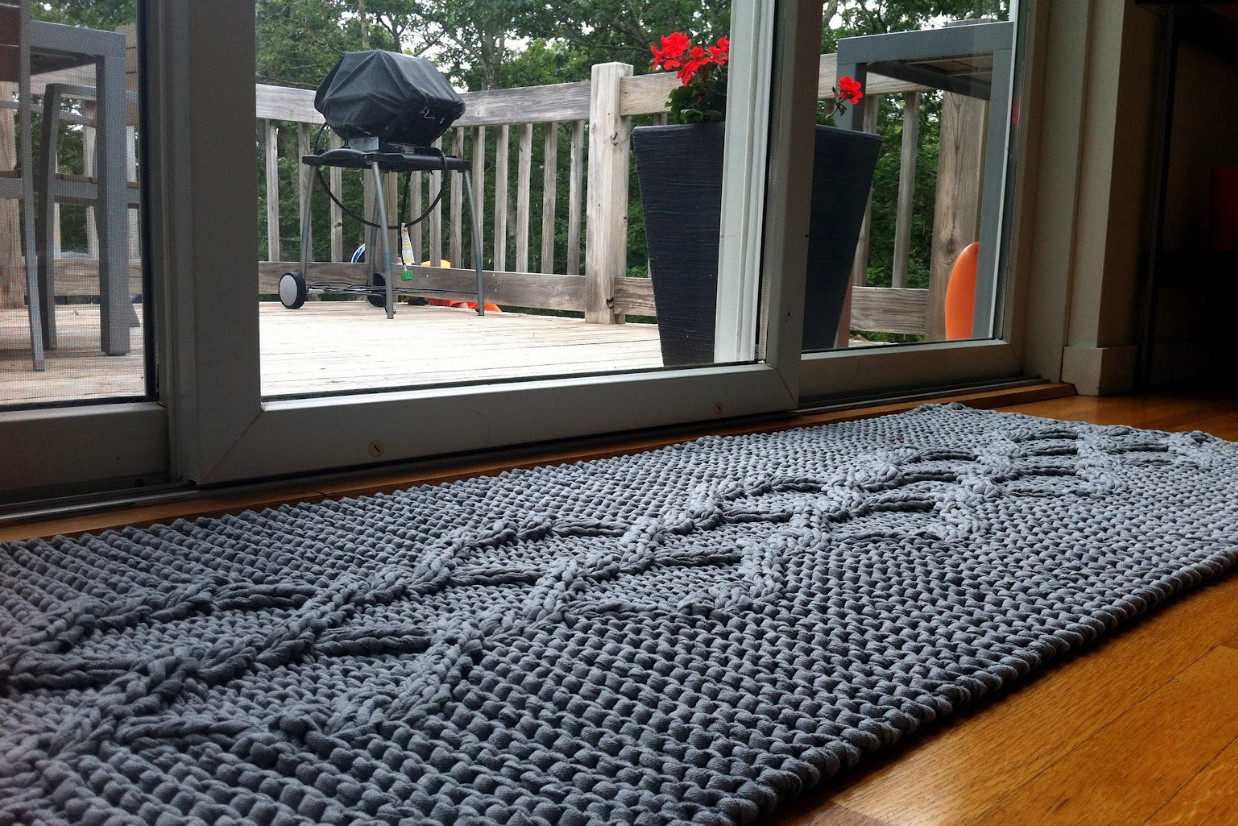
Important! When combining several colors in one rug, you need to use threads of the same diameter and density. So that the product turns out more elegant and neat.
Schemes with descriptions are intended for beginners who want to know how to knit a rug with their own hands. Such schemes are similar to the usual ones for making any other products on knitting needles. And they contain the same symbols.
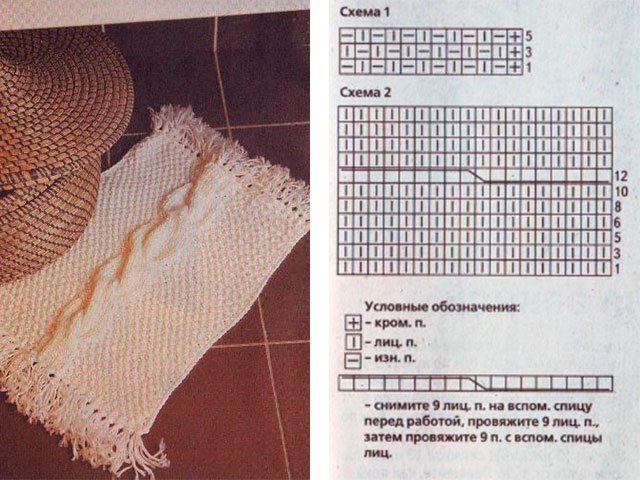
Only the assembly method differs. So, hand-knitted rugs can be divided into the following types.
- Round. Their knitting starts from the center and continues in a spiral. In this way, you can make a path on the floor of any size. The main thing is to have enough threads and space on the knitting needles.
The main thing is to choose the color, pattern and material to create a unique and complete composition. - Square. The rug is made in a standard way. A certain number of loops are cast on the needles. They will determine the width of the track.
For rugs that are made by the bed, it is good to use yarn, acrylic. They are softer, and the feet will be pleased to step on them. - Assembled. The rug consists of several parts that are knitted separately. After that, they are assembled and form a single pattern.
A product with motifs looks good in the living room and kitchen, where it is easy to see all the details of the overall picture.
In addition to these methods, it is not difficult to make a rug from bows, pompoms, cords, belts, thick yarn or even ordinary materials at hand, etc.
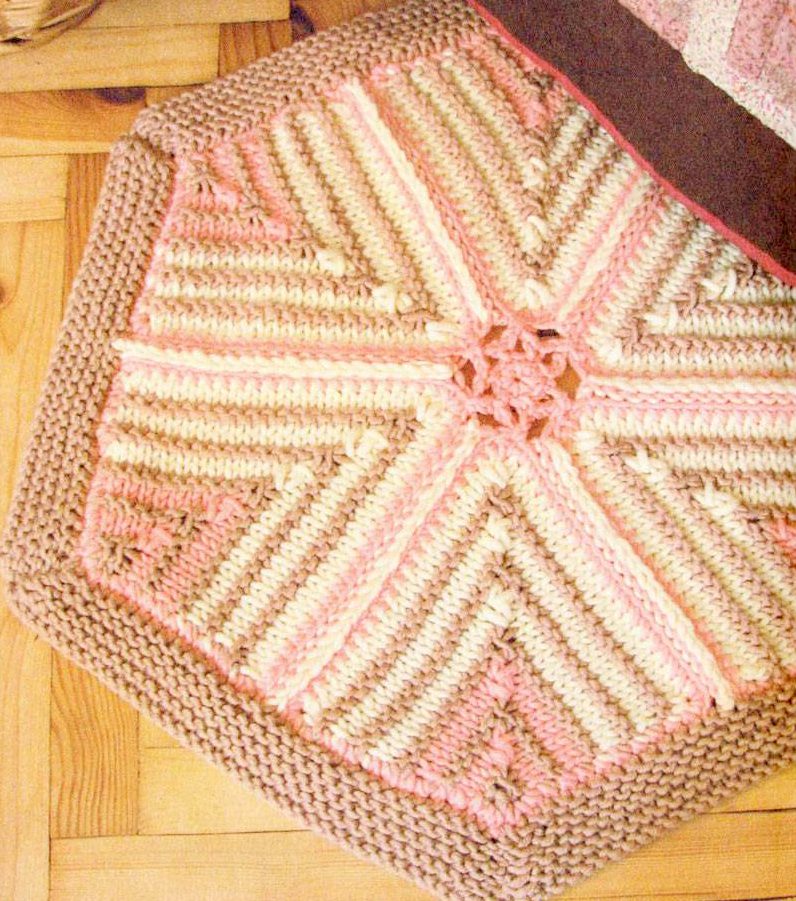
Knitting a rug for beginners
As for beginners who have not yet knitted complex designs, it is better to start making rugs with knitting needles in the form of a regular square or rectangle. This is the basic basis, to which decor in the form of fringe or braids is equally important.
Tools:
- 400 grams of yarn;
- 4 mm knitting needles;
- 4 mm hook.
Manufacturing:
- You need to cast on 58 regular stitches + 2 more edge stitches onto the knitting needle;
- then there are two rapports connected according to scheme 1. It is called “confusion”;
- the structure of the braid is shown in diagram 2, after it there are 2 more rapports;
- in this way you need to knit at least 42 cm of the product;
- The fringe completes the composition and is done through every second loop.
Important! Rectangular rugs made with your own hands do not always turn out neat on knitting needles. The appearance can be spoiled by untreated sides of the product. They can be corrected by crocheting. But this is not a mandatory step.
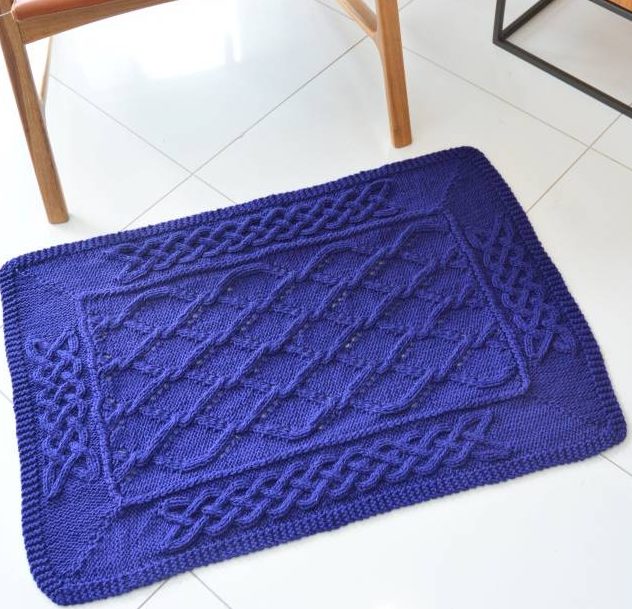
Round rug
The simplest way to knit a round rug is a spiral. But at the same time, it is a real test of the master's endurance.
Tools:
- hook;
- yarn of several colors;
- knitting needles.
Manufacturing
Before you start knitting a round rug with knitting needles, you need to make a base for it. For this, you need a hook. With its help, a small circle with a diameter of 20 cm is knitted.
Now you need to take the knitting needles and cast on only 15 loops. And start knitting them in the usual way. On the 10th row, you need to reduce the length of the resulting fabric to 10 loops, turn the product over and thus knit another 10 loops. Then you will have to increase the number of loops to 15 again. This alternation will accompany the entire process of making the fabric for the rug.
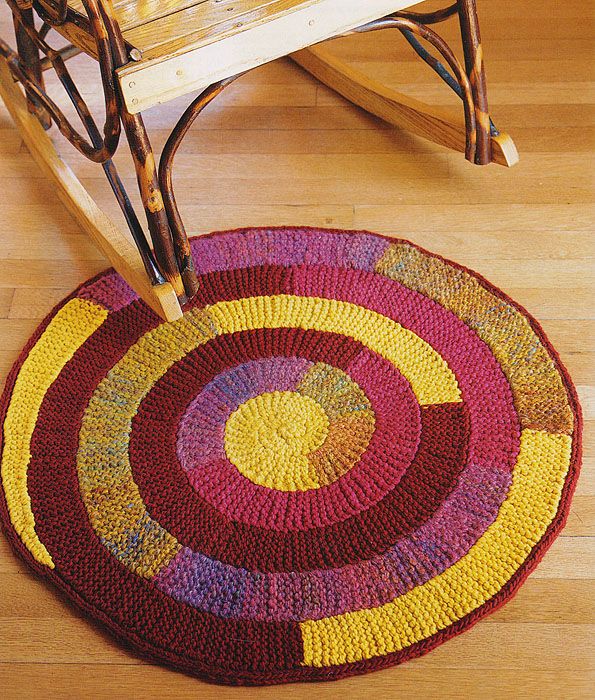
Wedge Rug
A wedge rug is a complex job that requires instructions. After all, weaving here occurs simultaneously from the front and back sides.
Tools:
- cotton or any other yarn;
- Circular knitting needles No. 7, length 60, 80 cm.
Manufacturing
- Cast on 50 loops on knitting needles using three threads.
- Select 10 loops for knitting the structure according to the pattern.
- On the remaining 40, regular short rows are used: on the front side up to the outer 3 loops, the next 2 loops are knitted into one front loop.
- Turn the fabric and continue to the end of the row with knit stitches to the last 4 stitches and the next 2 stitches are knitted into one.
- The next row is knitted one loop at a time to the last 5, and the next 2 loops are knitted into one front loop.
- The next row is repeated until the last six.
- The principle continues until 38 rows are knitted on the needle.
- The next pattern would look like 2 stitches joined together as knits, 1 knit, 1 knit and ends with 1 yo.
- Repeat the new algorithm until the last loop, and then the canvas is turned again;
- The next row is knitted on the wrong side according to the pattern.
- Yarns from previous rows are not turned. In their place, holes are formed;
- The work again involves 50 loops.
Thus, it is necessary to knit 11 wedges and 22 rapports. When all the parts are ready, they are sewn together with regular sewing threads.
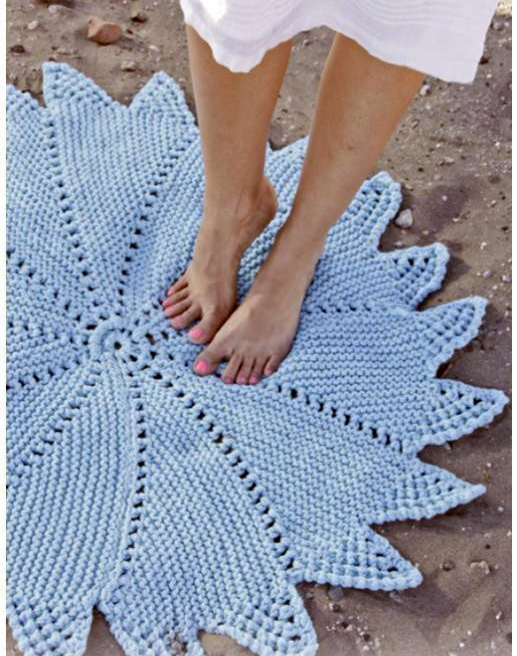
Star rug
To make this rug you will need several shades of threads. So that the drawing will be more voluminous.
Tools:
- yarn 4 colors;
- knitting needles;
- needle;
- sewing threads.
Manufacturing
First, the parts are made from yellow threads. For this, 5 loops are cast on the knitting needles. They are knitted with garter stitch. In each subsequent row, after the first and before the final loop, there is an increase. Exactly one more loop. Thus, each row adds 2 loops to the width of the product.
The next piece (dark yellow) on the contrary decreases 2 loops on one side, and on the other side, 2 loops are added.
The blue shade will be located next to the light yellow. Therefore, it should repeat its bend. Thus, on one side the loops are reduced, and on the other they form teeth. Such actions should be repeated at least 4 more times. The same should be done with the blue parts. With the corresponding bend in relation to the dark yellow shade.
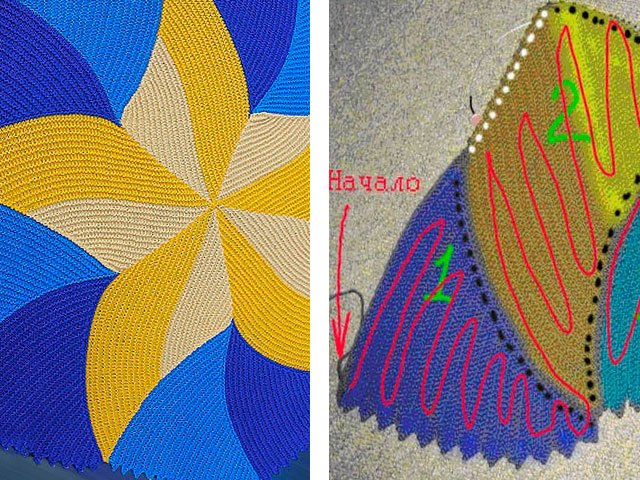
Fluffy rug "Sheep"
You can knit a rug with knitting needles creatively and easily if you resort to trickery. The product "Sheep" consists of 80% pompoms and only 20% of the knitted part.
Tools:
- knitting needles;
- brown yarn;
- white or beige yarn threads;
- sewing thread and needle.
Manufacturing
Pompoms are made from threads of a lighter shade. To make them, you need to wind a certain amount of threads on your folded palm. The ends left at the beginning of the winding and at the end need to be tied together. The resulting skein is cut and you get a pompom.
The body and head are made flat, so you don't need great knitting skills. To make it you will need:
- 4 straight strips for limbs;
- 2 small triangles;
- 1 large triangle for the head.
Important! One of the tips on how to creatively improve the product is to make the pompoms that imitate the body of the sheep in different sizes. This way, the rug will be more voluminous.
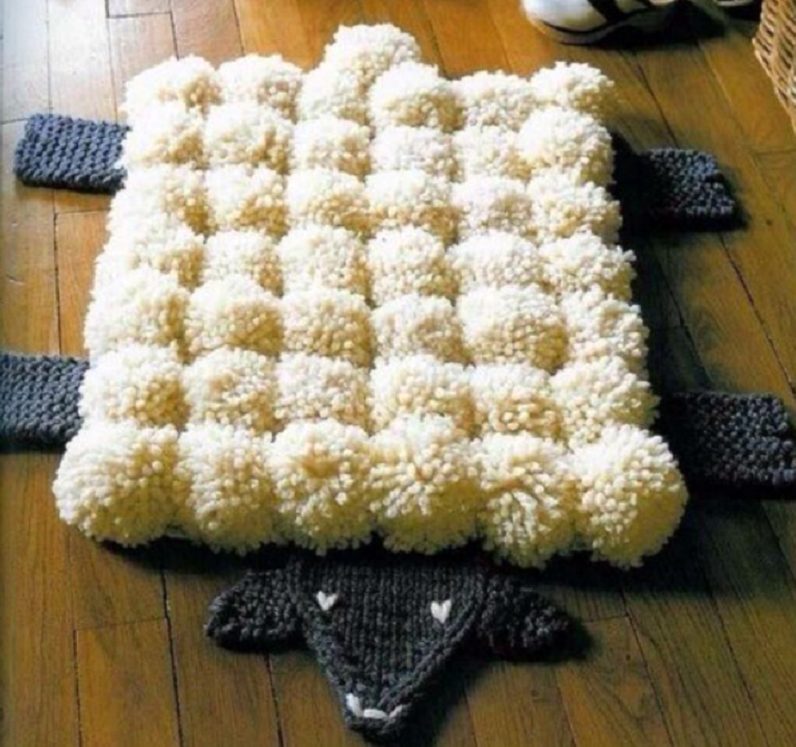
Chair Seat Mat
The chair cover is made according to the dimensions and shape of its seat. Therefore, this type of product can be presented in different techniques and variations. One of them is a rectangular rug made of leftover threads of different textures.
Tools:
- knitting needles;
- remnants of various yarns;
- hook;
- threads;
- needle.
The step-by-step process of creating a seat mat can be divided into:
- preparation of threads;
- knitting of parts;
- assembly;
- processing.
So, the key elements of the rug are small rectangles measuring 5 by 25 cm. They are made with regular face loops. To get a small rug, you will need at least 10 of these parts.
Important! Different types of yarn may not hold together well. Therefore, over time, the rug may begin to fall apart. To prevent this process, the product must be steamed in hot water and then ironed through gauze. This will make the connection between the threads stronger.
The next stage is assembly. All the parts have a vertical pattern, obtained from the weaving method. Therefore, during the assembly of the product, you need to pay attention to it, and arrange the parts vertically according to the pattern, in a checkerboard pattern.
The finishing touch is edging. This is done using a hook and yarn of one of the shades used inside the product.
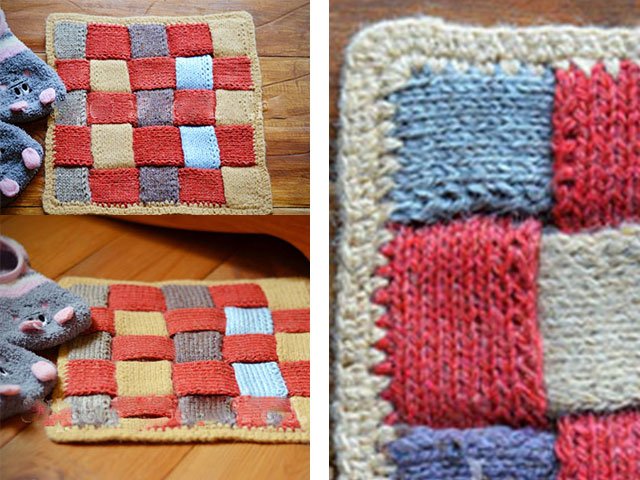
Chair Back Mat
It is better if the style of the chair seat is repeated in the cape on its back. Therefore, to make a cape from a small rug from the previous point, you can additionally sew elastic bands on the back of the product. So that it stays on the back. Or you can make a full-fledged cape that will cover both the seats and the backs of chairs or armchairs.
Tools:
- knitting needles, hook;
- yarn.
Manufacturing
- Cast on 60 stitches onto the knitting needles.
- Divide the set into 15 stitches. These will be the sections for placing the pattern.
- At the end you need to close all the loops.
- The rug itself is tied with threads in two single crochet stitches three times.
If desired, the product can be decorated with fringe. There are also options when 3 to 5 shades of one color are woven into the snake, creating a smooth, beautiful gradient on the pattern.
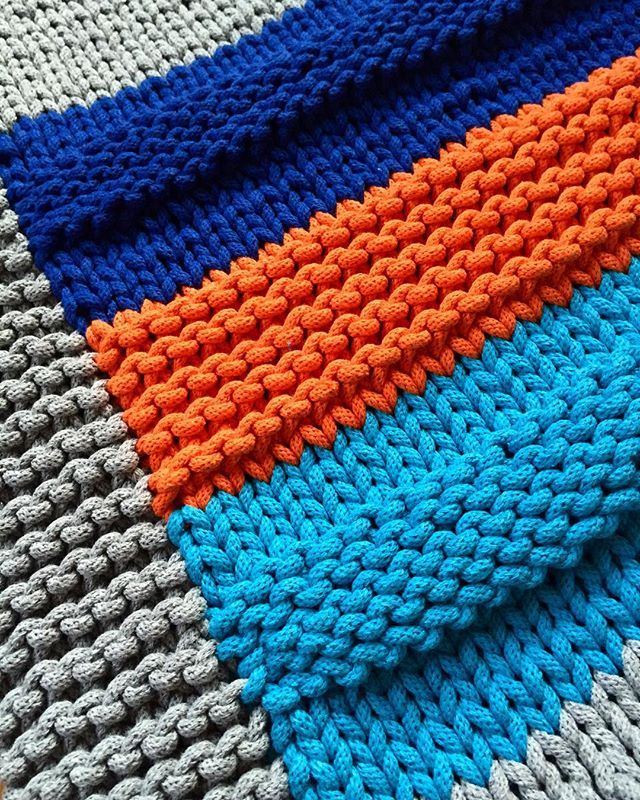
How to knit a rug from thick yarn using knitting needles?
To make rugs from such material, special equipment is needed. In this case, we are talking about knitting needles. Their diameter should be at least 25 mm, so that the threads of such volume do not fall off and do not get tangled.
Tools:
- yarn;
- large knitting needles.
Manufacturing:
- using the standard method, 41 loops are cast on to the knitting needles;
- then the front side is knitted using face loops;
- the last loop is not knitted;
- repeat this way for two more rows.
Since the threads are quite voluminous, knitting a 104 cm long carpet will not take much time and effort.
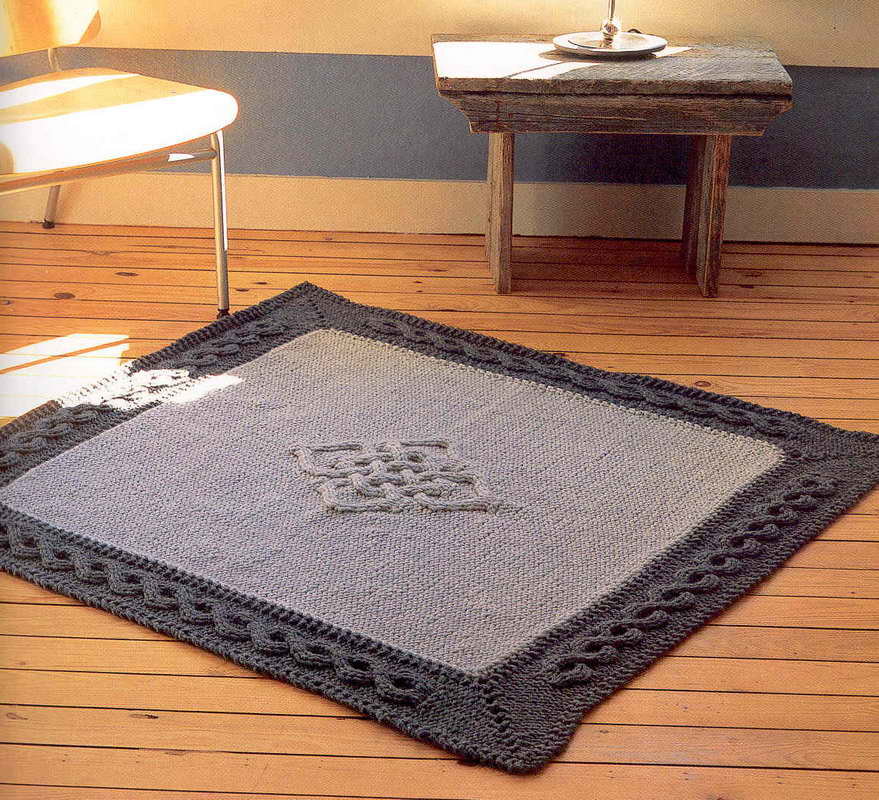
Conclusion
The popularity of miniature handmade rugs arose as a result of people getting tired of bulky structures with incomprehensible designs that were so popular in the post-Soviet space several decades ago.
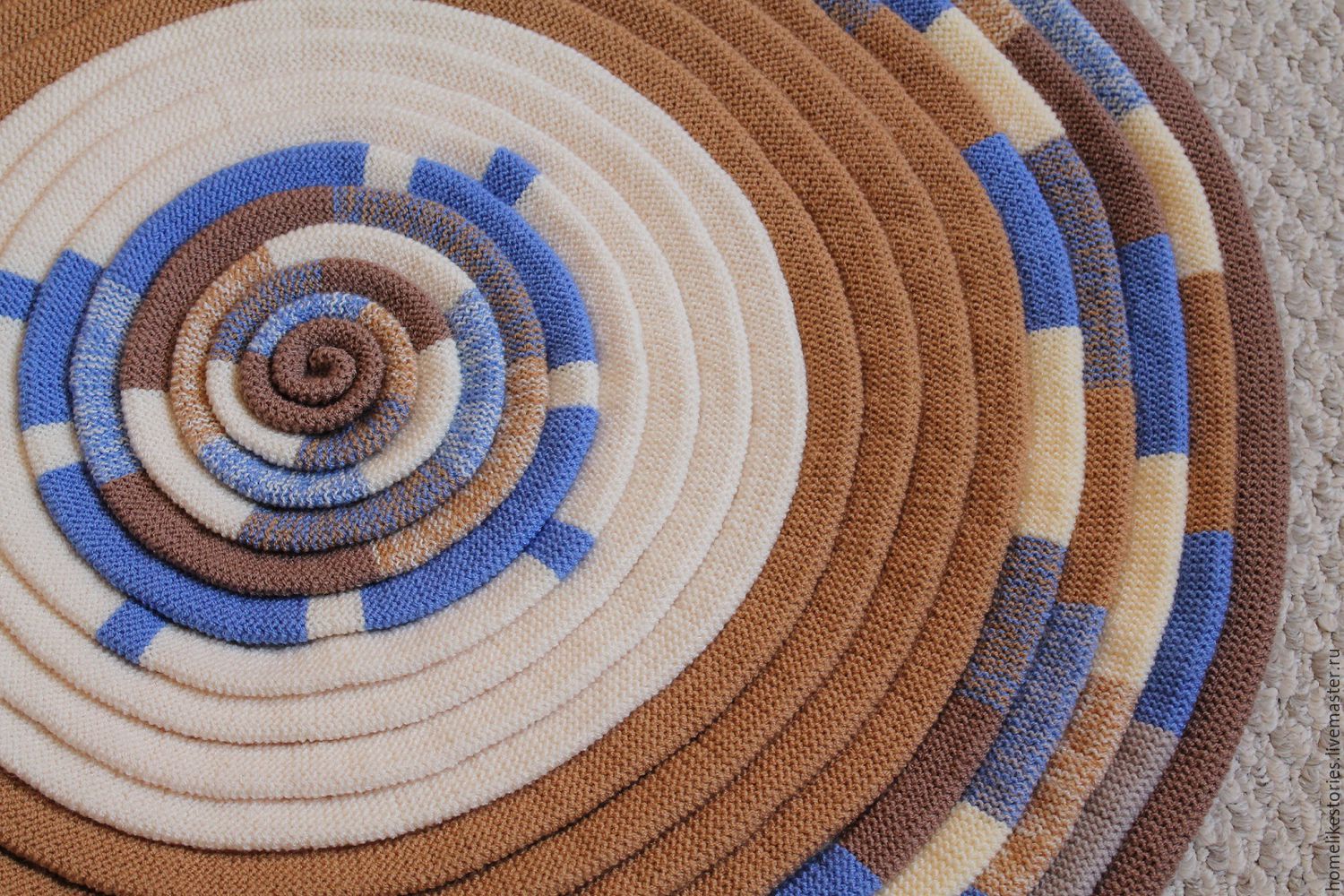
Nowadays, the interior tends to minimalism and comfort. What is additionally emphasized by such small rugs. As you can see, there are quite a lot of options for knitting them. And each of them is presented with diagrams and descriptions in the public domain. Some of them are intended for beginners, others - for real masters. But everyone can find a suitable option for themselves.


